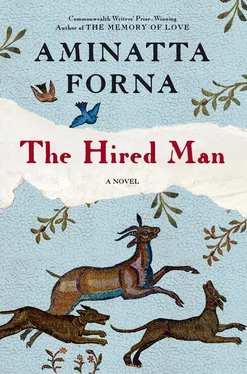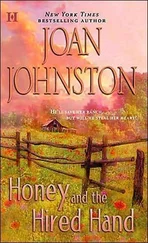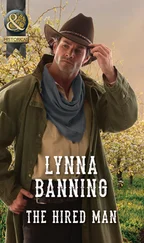Aminatta Forna
The Hired Man
At the time of writing I am forty-six years old. My name is Duro Kolak.
Laura came to Gost in the last week of July. I was the first to see her the morning she drove into town. From the hillside you have a view of the road, one of the three that lead into town: the first comes direct from the north, the second and third from the south-east and the south-west respectively. The car was on the road that comes from the south-west, from the coast. An early sun had burned off most of the mist and on a day like this the deer might be encouraged to leave the woods and come down the hill, so I’d turned back to fetch my rifle even though it was not the season to hunt.
I’d chosen my spot and laid out my breakfast. On the branch of a tree a collared dove rested out of view of the falcon soaring above. I trailed the bird lazily through my rifle sights and that was when I noticed the car. A large, newish four-wheel drive, being driven very slowly down an entirely empty road as though the driver was searching for a concealed entrance. I lowered the gun so that I had the vehicle fully in my sights but the angle and reflection of the sun made it impossible to see who was driving.
An hour later I was on the road home carrying my gun and an empty bag. Instead of cutting through the long field I kept to the road until I reached the blue house. A row of trees grew on the verge in front; over the years I’d watched three of them reach and exceed the height of the roof, the fourth had died some years back. Nobody to cut it down and so it remained standing next to its living companions, branches like bleached bones. The overhang of the roof cast a deep shadow on the walls of the house, stains flowed from the windowsills down the whitewash, buddleia sprouted from a high gutter: a slow slip into decay. Nobody had a reason to go there, not even children for whom there was no shortage of empty houses to play in and anyway this one was too far away, beyond the boundaries of the town.
The door of the house rested upon its hinges, the shutters were pushed back and one of the windows (glass darkened with dirt and crossed with silvery strands) stood open. Parked up with two wheels on the grass was the car I’d seen earlier in the morning. From inside: voices. One, a girl’s: young, high, hesitant. The other was older. They spoke in English (from what I understood, it had been a long time since I’d heard English), they were talking about something they’d lost. I was listening to a mother and daughter. The daughter said she’d go and look in the car.
I slipped out of sight around the side of the building where the old ladder hung. I waited, leaning against the wall, and listened to her footsteps, the heft of the car door. Only then did I realise I wasn’t alone: a boy of sixteen or seventeen was standing at the other corner of the building. He wore a checked shirt, jeans, black-and-white baseball shoes and stood with his eyes closed and his face tilted up to the sun. He had his hands cupped over his ears as he listened to music through his headphones, lost to the sound and unaware of me. I retreated softly to the road.
At home I considered all the possible meanings of what I’d seen while I did my exercises: twenty-five pull-ups from the bar over the door. Twenty-five squats. Twenty-five crunches. I did press-ups until the muscles in my arms burned. Afterwards I started brewing some coffee. I’d only taken a single cup before I left the house, but then I changed my mind and set the pot back on the stove. I decided to go into town and have coffee at the Zodijak instead.
Outside the Zodijak the chairs and tables were already out. I nodded at a couple of the guys — one of them worked in the garage next door. Fabjan had hired a new girl for the summer, who smiled at all the customers, which here is as disconcerting as if she walked through the streets singing. She told me Fabjan was on his way in. I ordered a coffee. Someone else called for a Karlovačko. We sat in silence and watched people passing in the street.
It was close to nine by the time Fabjan showed up. Fabjan drives a custom-sprayed BMW, meaning nobody else has one in the same colour and so he doesn’t need to bother to lock it. He was wearing a new suede jacket, something like the colour of butter, and freshly laundered jeans, faded and tight around the balls. Fabjan’s put on a few kilos over the years and the waistband of his jeans cut into his gut. He wore a year-round tan and the beginning of jowls.
Fabjan joined me. He didn’t have much choice; I’d taken his table, which is something I do to annoy him: a small pleasure in a quiet town. He put his car keys and Marlboro Lights on the table, called for a Karlovačko and rummaged in his pocket. Lately he’d been complaining of a toothache, but he hates dentists and so took two pills with his first gulp of beer. Fabjan’s gums are receding at the same rate as his hair, one of his front teeth is broken. I knew how he’d broken it and when; in all that time he’d never had it fixed. A gold glint in the back of his mouth provided the sole evidence of dental work. I wondered if Fabjan was sleeping with the new girl.
‘What’s up?’ I said.
Fabjan shrugged and sipped his beer.
We sat. I finished my coffee and called for another. The postman arrived, climbed off his bike and leant it against the railing at the front of the café. ‘ Dobar dan ,’ he said.
We nodded. I said hello. My father used to work at the post office and I knew a few of this man’s colleagues, even if he himself had only arrived ten years ago or less by which time my father was dead. The girl came from inside to take the mail and smiled at him. The postman cycled away. Minutes passed, but I am a patient man. I ordered a third coffee. Eventually someone spoke and it was what I’d come for.
‘New people in the old Pavić house.’ It was the guy sitting with the one who worked in the garage. He was jug-eared and fat.
Fabjan grunted, cleared his throat and sucked his teeth. Nobody spoke.
After a minute or two the same man spoke again. ‘English. English.’ And because he knew he had our attention, he continued, ‘Not visitors. They’ve bought it.’
The man worked in the municipal offices. I’d dealt with him a few times when I went in to pick up building permissions. Fabjan stared ahead of him into the street and cracked his knuckles as if the news was of no interest to him. He called for the girl to bring over the post and made a show of being busy. I waited to see if the man had any more to add and, when I decided he didn’t, I paid my bill and left for home.
Next morning I woke before sunrise. I worked through my exercises and since it was still early I drank a coffee and waited. At eight thirty I went out. I let the dogs out of the pen so they could come with me. They ran ahead, noses to the ground. We walked in the direction of the blue house.
In the road stood a woman. She wore a denim skirt and espadrilles, her face was hidden by her hair which fell loose either side. She was bent double, inspecting something at the side of the road. I whistled for the dogs to return to me and at the sound she straightened and raised one hand to shield her eyes from the sun. She looked directly at me and gave me so welcoming a smile that for a moment I thought she’d mistaken me for somebody else. I saw that she’d been looking into the depths of a drain. ‘Hello,’ she said.
I replied.
She pushed her hair back and dropped her hand. The dogs ran forward. I whistled, but she said, ‘It’s OK,’ and held out her hand to let them smell her and when they were satisfied she patted each dog on the head and fondled its muzzle. ‘They’re lovely,’ she said. ‘What are their names?’
Читать дальше












